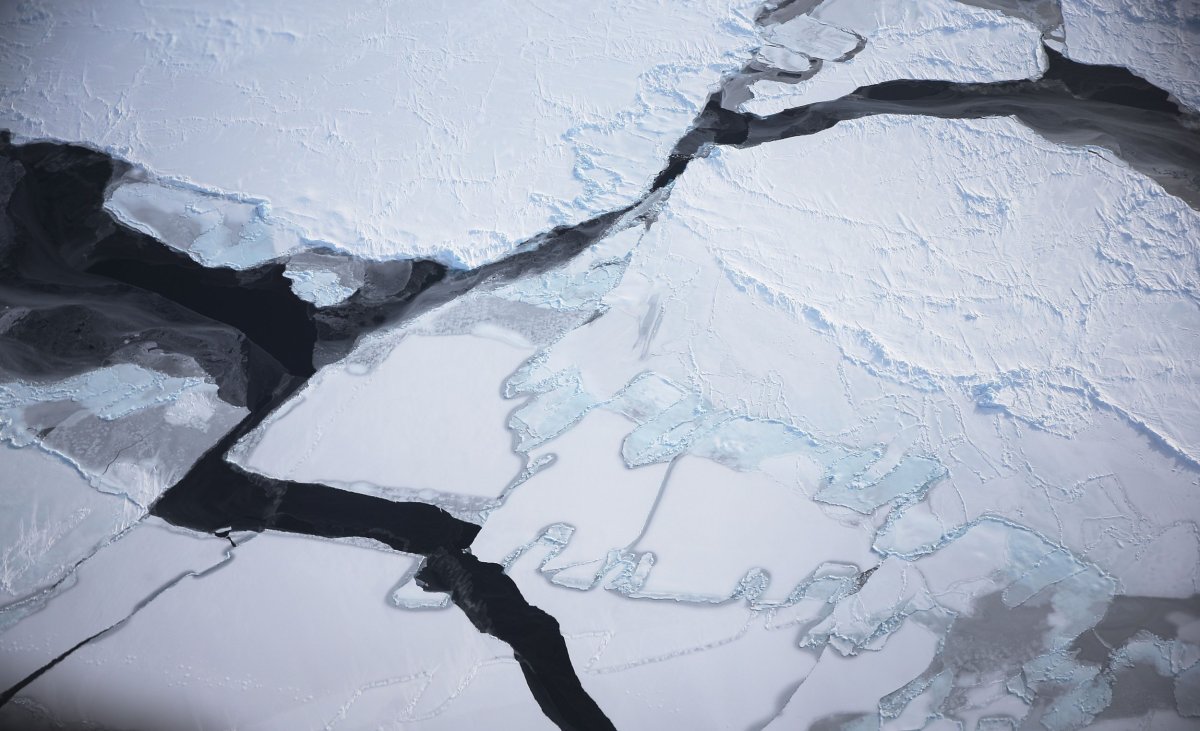As ice melts in West Antarctica the ground beneath is quickly rising—a process that could prevent the catastrophic collapse of ice sheets, according to researchers.
A study published in the journal Science provides a rare glimmer of hope for a region beleaguered by climate change. In recent years, several studies have warned the ice sheet, which contributes to a quarter of melted ice worldwide annually, is vulnerable to disintegrating. Scientists fear even a slight depletion could cause global sea levels to rise by as much as 3 meters.
Researchers at the Technical University of Denmark set out to answer how the bedrock underneath the sheet of the Amundsen Sea Embayment of West Antarctica behaves as the ice melts.

To study the land, the team analyzed data collected by high-precision GPS equipment positioned on remote rock formations in West Antarctica, which measured movements of the land down to the millimeter over a 10-year-period.
"After what I would say was a heroic effort to install and maintain the network of sensors in one of the least accessible places on the planet, the team has been rewarded with incredibly valuable data, which tell an incredible story about the Earth," wrote Valentina R. Barletta, postdoctoral researcher at Technical University of Denmark.
The team was surprised to find the Earth's structure was very different from what they had anticipated, and was pushing the bedrock to rise faster than expected.
In 2014, the surface rose 41 millimeters: four to five times quicker than predicted. In 100 years, the land could be up to 10 meters higher than it is currently.
Barletta compared the Earth's structure to a double-layer mattress. Atop sits a springy, elastic layer, and a thick, memory foam layer beneath. How quickly the Earth responds to the masses of ice melting depends partly on how viscous the springy upper mantle is. The authors found mantle was much less viscous that previously believed.
Read more: Earth will start becoming a desert by 2050 if global warming isn't stopped, study says
It is hoped that as the ice thaws, the Earth's crust will bounce back much faster than previously anticipated. In turn, this could stabilize what the authors described as a "catastrophic collapse" of the ice sheet.
However, Barletta told Newsweek the ice sheet will never stabilize if global warming becomes too extreme.
By broadening our understanding of this region, the research could form the basis of future studies into interior of the Earth's structure, she added, and improve ice models to study how the feedback of the bedrock on the ice is effective.
"Reducing the greenhouses gas will give the ice sheet a better chance of survival because [that] would allow some known and unknown feedback to create better conditions for the ice," she said.
Uncommon Knowledge
Newsweek is committed to challenging conventional wisdom and finding connections in the search for common ground.
Newsweek is committed to challenging conventional wisdom and finding connections in the search for common ground.
About the writer
Kashmira Gander is Deputy Science Editor at Newsweek. Her interests include health, gender, LGBTQIA+ issues, human rights, subcultures, music, and lifestyle. Her ... Read more
To read how Newsweek uses AI as a newsroom tool, Click here.








